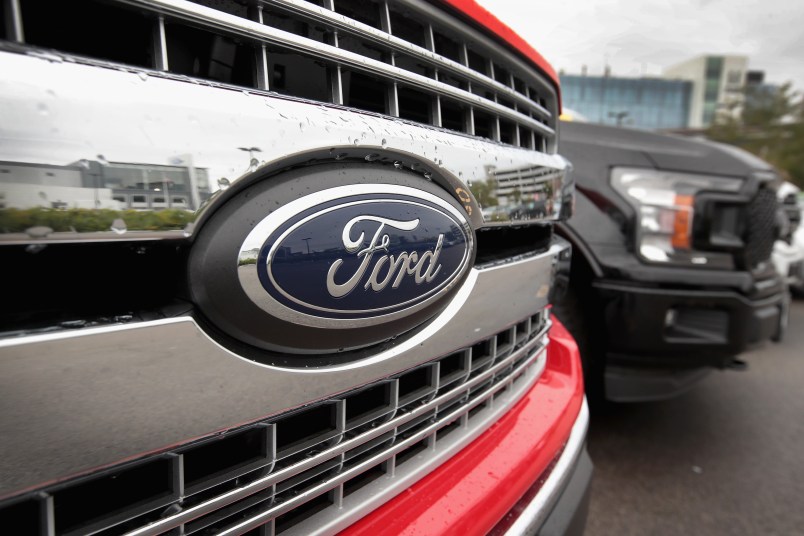WASHINGTON (AP) — Ford won’t be moving production of a hatchback wagon to the United States from China — despite President Donald Trump’s claim Sunday that his taxes on Chinese imports mean the Focus Active can be built in America.
Citing Trump’s new tariffs, Ford on Aug. 31 said it was dropping plans to ship the Focus Active from China to America.
Trump took to Twitter Sunday to declare victory and write: “This is just the beginning. This car can now be BUILT IN THE U.S.A. and Ford will pay no tariffs!”
But in a statement Sunday, Ford said “it would not be profitable to build the Focus Active in the U.S.” given forecast yearly sales below 50,000.
For now, that means Ford simply won’t sell the vehicle in the United States. Kristin Dziczek of the Center for Automotive Research said that Ford can make Focuses “in many other plants around the world, so if they decided to continue to sell a Focus variant in the U.S. market, there are several options other than building it in the United States.”
In April, Ford announced plans to stop making cars in the United States — except for the iconic Mustang — and to focus on more profitable SUVs. It stopped making Focus sedans at a Wayne, Michigan, plant in May. The plan, said industry analyst Ed Kim of AutoPacific, was to pare down the Focus lineup to Active wagons and import them from China. “Without the tariffs, the business case was pretty solid for that model in the U.S. market,” Kim said.
The tariffs changed everything. The United States on July 6 began imposing a 25 percent tax on $34 billion in Chinese imports, including motor vehicles. Last month, it added tariffs to another $16 billion in Chinese goods and is readying taxes on another $200 billion worth. China is retaliating with its own tariffs on U.S. products.
The world’s two biggest economies are clashing over U.S. allegations that China deploys predatory tactics — including outright cybertheft — to acquire technology from U.S. companies and challenge American technological dominance.



